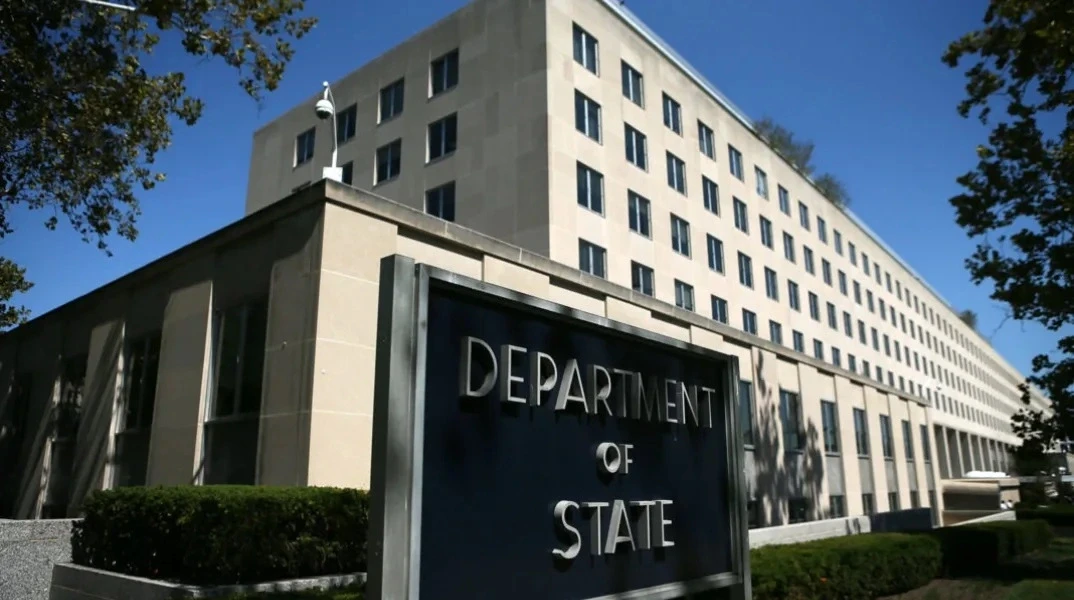In President Donald J. Trump’s Washington, Congress may no longer carry the same weight as an independent driver of American foreign policy, but lawmakers still retain tools to send signals and shape developments abroad.
One of the most powerful is the annual National Defense Authorization Act, or NDAA, which funds all U.S. national security policies. Work on this year’s bill has already begun, with a wave of proposed amendments that spotlight Turkey’s destabilizing actions in the eastern Mediterranean.
Among the most prominent are three measures introduced by Democratic Representatives Dan Goldman of New York and Josh Gottheimer of New Jersey. Their amendments would prohibit U.S. arms transfers to Turkey, require an assessment of the security risks posed by its continued occupation of Cyprus, and examine Ankara’s reported ties with Hamas.
Mr. Gottheimer, who has pressed for a tougher U.S. line toward Ankara, said the United States must “stand up to Turkey’s aggression against our allies and partners.” He accused Turkish President Recep Tayyip Erdogan of seeking to “destabilize the Eastern Mediterranean while supporting terrorist groups like Hamas and cozying up to dictators like Putin.”
He said his amendment would block the sale or transfer of U.S. weapons to Turkey until the administration explains how it is addressing Ankara’s violations of allied sovereignty. “Any threats against Cyprus, Greece, or Israel will not be tolerated,” he said.
Fourth Amendment Seeks to Expand 3+1 Security Partnership in the eastern Mediterranean
Another measure goes further, incorporating the defense provisions of H.R. 2510: the American-Hellenic-Israeli Eastern Mediterranean Counterterrorism and Maritime Security Partnership Act of 2025. The bipartisan bill, led by Representative Nicole Malliotakis, Republican of New York, and co-sponsored by Mr. Goldman, Mr. Gottheimer and Representative Thomas Kean Jr., Republican of New Jersey, is one of the most heavily backed initiatives concerning U.S. relations with Greece and Cyprus in the current Congress.
By attaching its defense provisions to the NDAA, lawmakers hope to increase the likelihood that the initiatives — including new counterterrorism and maritime security programs — will become law.
The amendment would establish two programs within the “3+1” framework, which brings together the United States, Greece, Cyprus and Israel. The first, known as the CERBERUS Program — short for “Counterterrorism Education for Readiness Building in the East-Mediterranean Region to Unify Security” — would be based in Cyprus and overseen by the Pentagon in coordination with the State Department, providing counterterrorism training for officials from all four nations.
The second, the TRIREME Program, or “Training and Readiness Initiative for Regional East-Mediterranean Maritime-Security Enforcement,” would be housed at the U.S. naval facility in Souda Bay, Crete, pending approval from the Greek government. The program is designed to strengthen interoperability among the naval and coast guard forces of the participating countries.
The legislation also authorizes $8 million for new facilities at the Cyprus Center for Land, Open-Seas and Port Security — known as CYCLOPS — and an equal amount for investments at Souda Bay. An additional $2 million annually would support operations at both facilities from fiscal years 2026 through 2029. The Pentagon would be required to submit progress reports to Congress every six months and, within a year, present comprehensive strategies on counterterrorism and maritime security cooperation in the region.
Broad Coalition of Diaspora and Policy Groups Rallies Behind 3+1 NDAA Amendment
The initiative has drawn backing from a wide-ranging coalition of diaspora groups, think tanks and advocacy organizations. The American Hellenic Institute (AHI), which played a central role in shaping the original provisions, said it viewed the measures as an important opportunity to confront Turkey’s record.
“AHI appreciates the opportunity to work with Rep. Goldman and Rep. Gottheimer to bring attention to Turkey’s repeated threats to the security of the United States and its allies,” said Alexander Christofor, the group’s legislative director. He added that the occupation of Cyprus continued to harm U.S. interests in the region and argued that Turkey should be held accountable for its reported relationships with terrorist organizations.
Other longtime diaspora groups such as AHEPA and the Hellenic American National Council have lent their support, along with B’nai B’rith International. In the think tank world, the Foundation for Defense of Democracies and the Jewish Institute for National Security of America have endorsed the effort, while the Conference of Presidents of Major American Jewish Organizations, a group with longstanding influence on U.S.–Israel policy, is also behind the amendment.
Together, advocates say, the coalition underscores bipartisan concern in Washington over Turkey’s role in the Eastern Mediterranean and reflects a shared interest in deepening U.S. security ties with Greece, Cyprus and Israel.
Source: Tovima.com










































